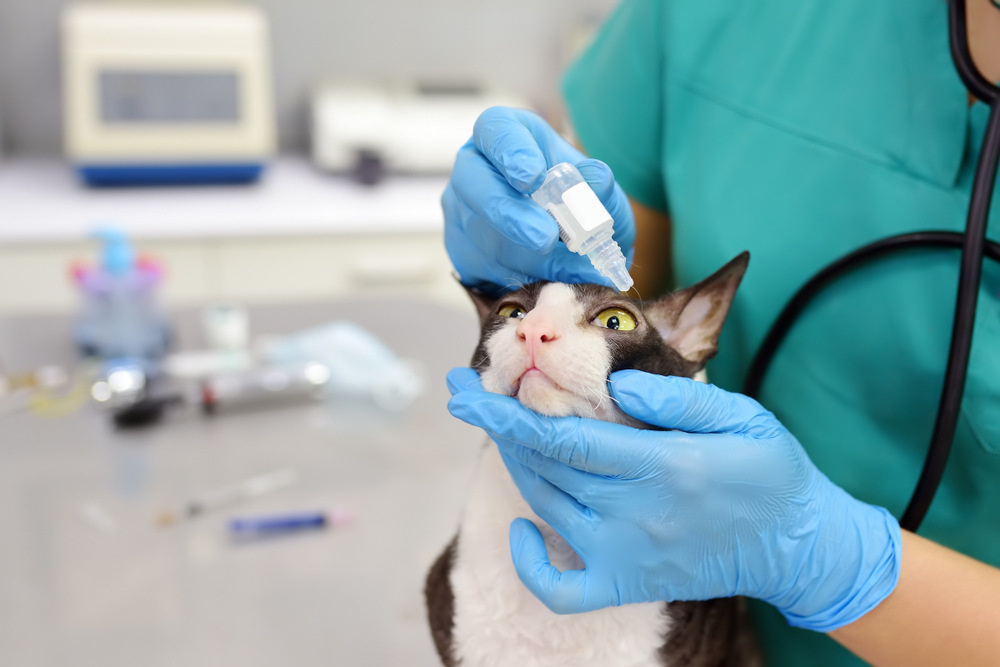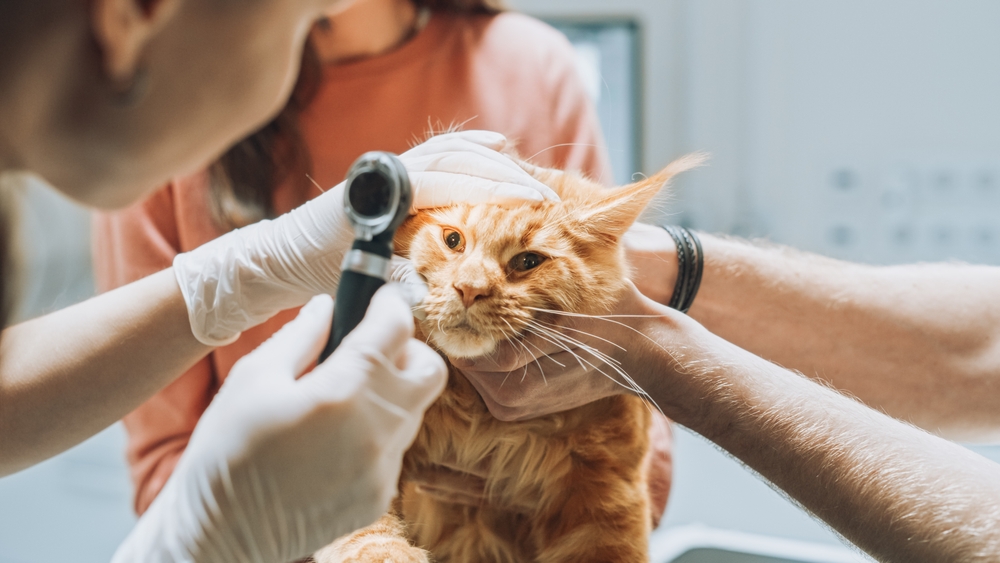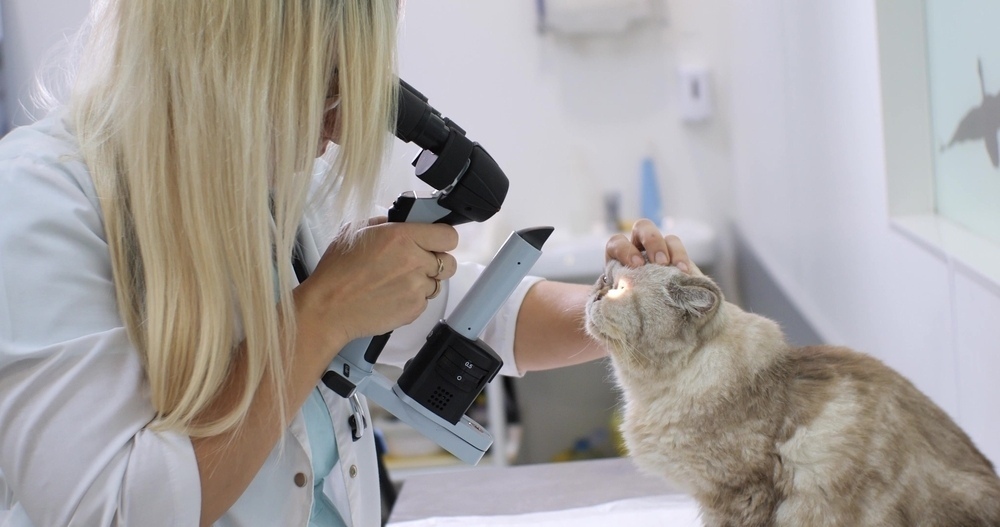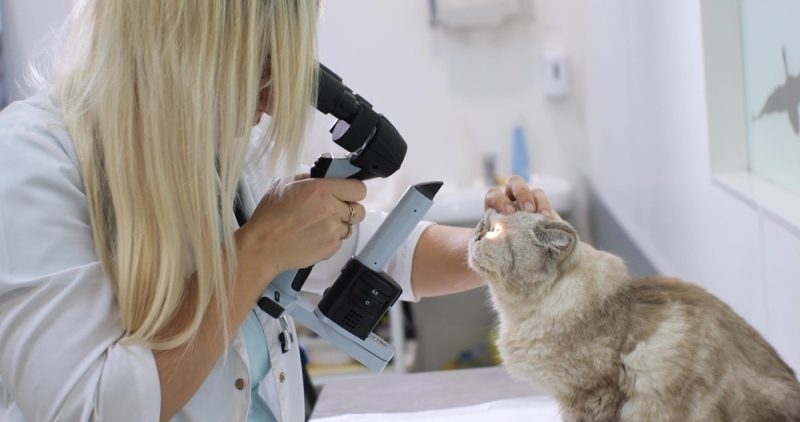Cats do not see the world in the same way that humans do. Their eye anatomy is different, and their eyes glow due to a reflective membrane at the back of their eyes that helps them see well in the dark. They have two eyelids (one above the eye and one below) like we do, but they also have what’s referred to as a third eyelid, or nictitating membrane.
We don’t usually see a cat’s third eyelid unless they are just waking up from a long nap or are otherwise looking around lazily. Then, you might be able to glimpse their third eyelid before it slides back into place. However, certain problems and conditions outside of these normal circumstances can result in its sustained appearance, like if the cat is dehydrated or injured.
So, why would your cat’s third eyelid be showing? There are common causes that are worth exploring.
The 5 Reasons That a Cat’s Third Eyelid Is Showing
1. Eye Disease
Any type of eye disease can cause your cat’s third eyelid to show itself either sometimes or all the time.
- Entropion (turning in of upper, lower, or both eyelids leading to corneal irritation and possibly ulceration)
- Conjunctivitis
- Corneal ulceration
- Glaucoma
- Eyelid mass
If you suspect that your cat is suffering from an eye disease or ailment, it is important to schedule a checkup with your veterinarian as soon as possible. The longer a problem is left to fester, the harder it could be to treat and correct.

2. Dehydration and/or Old Age
Both old age and dehydration can cause loss of tissue around the eyes, which in turn, can cause the third eyelid to prolapse, becoming visible more often or all the time. Rehydration can help restore eyelid performance, but the cause of dehydration may be much harder to treat. For example, a cat suffering from dehydration due to chronic kidney disease will continue to be dehydrated due to inappropriate fluid loss through excessive urination. Many other systemic diseases can cause dehydration in cats, so an examination with your veterinarian is warranted.
For an older cat, generalized weight loss can cause the fat pad behind the eye to reduce in size, causing the eye to sink inwards and the third eyelid to raise up in turn. Veterinarian guidance and care are necessary to assess the cause of the weight loss and third eyelid exposure.
3. Nerve Damage
When a cat suffers from nerve damage, it can cause one or both third eyelids to at least partially prolapse. Damage to the facial nerve, either from infection, inflammation or neoplasia (growths) can cause the dysfunction of the third eyelid. If a third eyelid showing is due to nerve damage, other signs of nerve damage are likely to appear, including pupil size changes and loss of facial muscle movement. If you notice any of these symptoms, take your cat to the vet for assessment.

4. Gastrointestinal Issues
A fairly common reason for a cat’s third eyelids to show are gastrointestinal problems. This is known as Haw’s Syndrome and the third eyelid protrusions are usually present in both eyes and are accompanied by diarrhea. The cause is unknown, but viral infections have been linked to the syndrome.
5. Injury
Any kind of injury to the eye could cause a cat’s third eyelid to show temporarily until the affected area heals. Certain injuries could cause permanent damage, even if the third eyelid prolapse is temporary, so it’s always a good idea to have the injury checked out by a trusted veterinarian.
In Conclusion
There are many different reasons that your cat’s third eyelid might be showing and not sliding back into place. Some are more serious than others. The best course of action to take if your cat’s third eyelid remains visible is to see a veterinarian for a diagnosis and treatment plan.
Featured Image Credit: Lebedko Inna, Shutterstock









